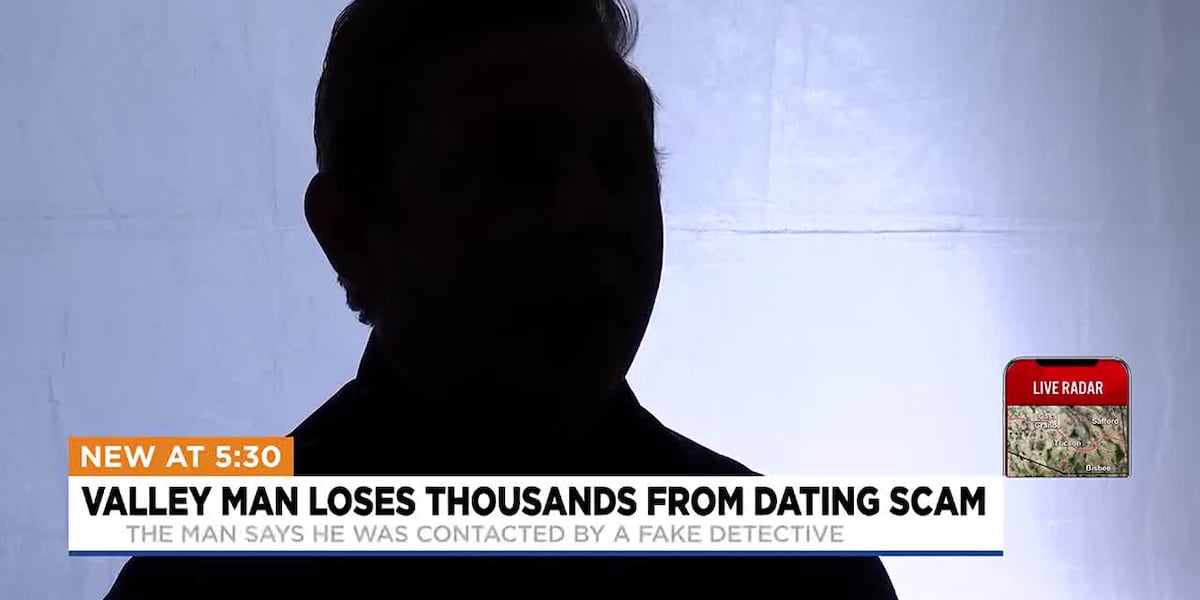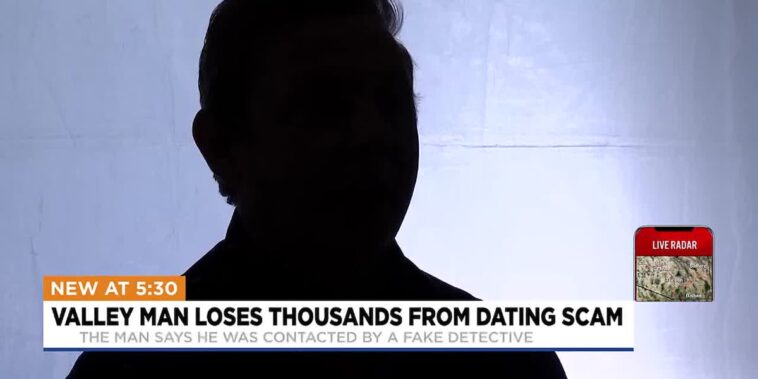

Legal Uncertainties in Modern Media Reporting
The recent spate of news stories emerging from Arizona underscores the tricky parts of our legal system, intertwined with modern media reporting. Today’s headlines—from a Scottsdale man allegedly duped by a Christian dating scammer to an immigration attorney receiving a controversial email from the Department of Homeland Security—reveal a maze of legal challenges and public fears. It is essential that we take a closer look at these reports with a balanced perspective, keeping in mind that law and order operate through a system subject to tangled issues, nerve-racking mistakes, and even misinterpretations in our fast-paced information age.
Examining the Legal Implications of Online Dating Scams
One headline that has captured the public’s attention involves the Arizona man who claims he was falsely accused of child sex crimes by a dating scammer on a Christian platform. Those who have experienced digital deception know that the twists and turns of online fraud are often loaded with problems. In this case, the man alleges that he lost thousands of dollars, his reputation tarnished by an enemy he never knowingly encountered.
This story forces us to dig into the legal responsibilities of app developers, platform managers, and even the users themselves. When a platform catering to individuals seeking religious dating experiences is exploited for criminal purposes, there is a fine line between protecting free speech and curtailing mischief. How much should a service provider be held accountable for the actions of users who exercise the system in questionable manners? The legal community has long debated such questions. In addition, news organizations must work through the subtle details of internet law to disclaim false allegations while ensuring that aggressive behavior by scammers is not left unchecked.
- Understanding digital identity verification
- Balancing free speech concerns with defamation risks
- Legal responsibilities of the dating platform providers
It is clear that effective regulation in this area is both essential and challenging, as technology continuously evolves beyond current legal frameworks. As such, cases like this publicize the need for further legal refinement in digital consumer protection.
False Accusations and the Weight of Evidence
An equally worrisome development involves cases where individuals are falsely accused of grave offenses such as child sex crimes. In the Arizona incident, a Scottsdale man found himself entangled in a legal battle he never imagined, as evidence manipulated by online fraudsters threatened his lifelong reputation and freedom. The wicked intricacies of evidence handling, the necessity of clear documentation, and the challenges posed by digital footprints make it a nerve-racking process for all involved.
Law enforcement needs to steer through this maze with a methodical approach, ensuring that every piece of evidence is critically examined before it is deemed admissible in court. Furthermore, public opinion—especially in the age of viral media—can be as intimidating as official legal challenges. Judges and attorneys have the daunting task of balancing the scales of justice while protecting the rights of those caught in the crossfire of digital deception.
Key points to consider include:
- Verifying digital evidence beyond a reasonable doubt
- Implementing best practices to counter false digital trails
- The importance of media restraint until facts are fully uncovered
These issues highlight the need for legal reforms in evidence gathering and digital forensic analysis, especially in cases with high media visibility. With public sentiment often swayed by incomplete information, the legal system must prove its integrity by meticulously working through every fine point of the case.
Immigration Law Under Scrutiny: A Case of Unwelcome Instructions
A particularly striking story has captured national attention: an Arizona immigration attorney received an email from the Department of Homeland Security instructing her to self-deport. Pamela Rioles Saeed, an American citizen born in Boston, has raised concerns that this directive is either the result of bureaucratic incompetence or a deliberate effort to intimidate individuals navigating the already intimidating terrain of immigration law.
This incident opens up a broader discussion about due process and civil rights. When a government agency communicates in such a manner, many are forced to take a closer look at whether such measures are designed to silence dissent or intimidate professionals who protect our rights. The case not only spotlights the challenging bits of bureaucratic procedures, but also the legal responsibility the government bears in safeguarding the rights of its citizens.
Crucial issues arising from this case include:
- What legal recourse is available to government employees or citizens when faced with intimidating directives?
- How does due process get affected by bureaucratically sent messages?
- What are the implications for legal practitioners advising vulnerable communities on immigration matters?
These questions are super important to ensure that legal processes do not intimidate those entitled to the full protection of the law. Such cases remind us that legal reforms may be necessary to protect individual rights from off-putting administrative overreach.
Public Safety and Legal Accountability in Traffic Incidents
The recent multi-car crash near Loop 303, which resulted in a fire that forced the closure of part of Glendale’s major roadway, is another example of how public safety challenges intersect with legal accountability. Accidents like these raise questions about infrastructure safety standards, emergency response, and the legal repercussions for parties involved.
When multiple vehicles collide and unexpected fires erupt, several legal questions emerge: Who is responsible for ensuring that road security measures are adequate? How can the law fairly assign fault in mass accidents involving several vehicles and multiple victims? What role do insurance companies play in compensating affected parties?
This case forces us to figure a path through numerous legal twists and turns, including:
- Determining liability when roadway design or vehicle maintenance might be at fault
- Balancing public safety interests with individual accountability
- Ensuring that insurance policies offer enough coverage to meet the victims’ needs
Legislators and legal professionals must work together to address these issues through a multi-faceted approach, ensuring that both preventative measures and effective legal responses are part of the plan moving forward.
The Consequences of Government Job Cuts on Veteran Services
Another headline that casts a shadow on public confidence in government comes from the massive cuts reported at the Department of Veterans Affairs. With approximately 80,000 jobs either gone or under threat, many veterans worry that the essential services they rely on for healthcare, benefits, and support will dwindle. The repercussions of these cuts could be broad, affecting both the direct recipients of veteran services and the legal frameworks that support public accountability.
In an environment full of problems, it is incumbent upon lawmakers to address these cuts by not only assessing their immediate impact but also by taking a closer look at the quality of legal support provided to veterans. The following aspects are crucial to evaluate:
- How are service cuts directly influencing the effectiveness of veteran care?
- What legal measures can be introduced to protect the rights of veterans?
- What accountability measures are available to ensure transparency in government salary cuts?
This situation calls for a coordinated effort among lawmakers, veterans’ advocacy groups, and legal professionals who must sort out a path that not only remedies the administrative deficiencies but also ensures that the smallest distinctions in service quality are addressed before they escalate into full-scale injustices.
Community Trust and the Role of Media in Sensitive Legal Matters
Beyond the high-profile headlines, community trust is also challenged when local news covers sensitive legal matters. Cases involving murder-suicides, family-related crimes, or even tragic accidents can rapidly become loaded with issues if the media fails to balance thorough reporting with a respect for legal procedures. The recent vigil held in Thunderbird Park for victims of a murder-suicide in Scottsdale highlights this junction between local sentiment and legal respect.
The responsibilities of journalists in reporting these stories cannot be understated. They must accurately present factual accounts without sensationalizing the events or influencing ongoing legal proceedings. The role of the media should be to simply get into the fine details of the case, providing a platform where all sides are heard, and while doing so, to remind the community that the pursuit of truth is a delicate task riddled with tension and opaqueness.
- Ensuring that the victim’s dignity is maintained in reports
- Avoiding unwarranted speculation until proven facts emerge
- Maintaining a balance between public interest and legal confidentiality
Public trust in both the legal system and the media will undoubtedly depend on how well each entity can manage the slight differences between reporting and investigating. Journalistic integrity remains super important in local legal affairs, a lesson that the media community must continually reaffirm.
Legal Accountability in Family-Related Crimes
A series of reported cases in the Phoenix area, ranging from allegations of familicide to disputes involving siblings, showcase how legal challenges complicate family matters. One particularly heart-wrenching case involved a man accused of murdering his brother in an affluent Valley neighborhood. Given the confusing bits of family relationships and the potential for long-standing resentments, assigning legal fault can be especially tricky.
Family-related crimes bring with them a unique set of legal and emotional challenges. Courts often grapple with cases that have a high level of personal involvement, essential questions of motive, and the hidden complexities of complicated family dynamics. These responsibilities include ensuring that victims are fairly represented while understanding the background that might have contributed to these ominous events.
A few important points in these cases are:
- Gathering solid evidence in situations where personal biases may interfere
- Respecting the privacy rights of those involved while ensuring justice is served
- Acknowledging the potential for long-standing family disputes to escalate into criminal behavior
Legal professionals tasked with handling these cases must therefore work carefully through the tangled issues of evidence and testimony, always keeping in mind that family matters are rarely black and white. The law must dig into every fine point, however subtle or seemingly inconsequential, to guarantee a just outcome.
Challenges in Civil Litigation During Times of Crisis
Today, we are also forced to reckon with a series of seemingly unrelated yet legally significant events across different sectors—from real estate disputes stemming from wildfires and housing crises to complex civil litigation involving claims against government agencies. The cumulative weight of these issues is overwhelming for legal systems already stretched thin by technological and societal changes.
Civil litigation during times of crisis demands that legal professionals figure a path through numerous overlapping areas of law. Whether the focus is on environmental damage resulting from Arizona wildfires or disputes involving housing and real estate, the tasks of evaluating damages, securing evidence, and mediating negotiations are loaded with challenges. Here are some of the particular challenges that come up:
- Determining legal culpability for naturally occurring disasters versus man-made negligence
- Balancing state regulation with private litigation rights
- Ensuring that small distinctions in contractual language are not ignored during legal battles
This period reminds us that the legal system is often called upon to work through overwhelming issues that affect both individuals and communities. It is the responsibility of legal experts to provide guidance during these times while ensuring that the law remains a refuge for those seeking protection from an unpredictable world.
Insights into Legal Reforms for the Future
Looking forward, it is clear that our legal system must adapt to the continual changes brought about by technology, shifting cultural norms, and evolving societal challenges. In the digital age, cases like false child sex crime accusations on online dating platforms or unorthodox governmental directives to self-deport call for new legal frameworks that can effectively address these modern challenges.
A few potential areas for reform include:
- Updating digital forensics standards to ensure accuracy in identifying perpetrators of online schemes
- Implementing clearer guidelines for government directives, thus preventing ambiguous or intimidating communications
- Strengthening legal accountability for companies operating in unregulated digital spaces
- Providing additional legal supports and reform efforts to secure justice in family-related crime cases
Legal reforms must be designed with community input, ensuring that the subtle details of each case are examined before new legislations are put into effect. It is super important that lawmakers collaborate closely with legal experts, technology professionals, and civil rights advocates to draft policies that are both robust and flexible enough to cope with the future’s unpredictable turns and twists.
Highlighting the Role of Critical Legal Thinking
At the heart of these debates is the necessity for critical legal thinking. This process involves not only understanding statutes and precedents but also appreciating the human elements that underlie legal conflicts. Whether one is sorting out responsibility in a multi-car accident, evaluating claims in family-related crimes, or questioning governmental authority in immigration cases, the role of legal professionals is to get into the subtle parts of every issue.
Critical legal thinking requires that we consistently ask:
- What evidence is beyond reasonable doubt?
- Are there biases that might color the interpretation of events?
- How do we balance the scales of justice between state interests and individual rights?
The process of making tough legal decisions is often filled with tense moments and overwhelming choices. However, by taking a closer look at each fine detail—a step that can sometimes be slowed by bureaucratic inertia—legal professionals can ensure that fairness is not compromised. These measures not only uphold the integrity of the judicial system but also serve as a model for future reforms.
The Media’s Role in Bridging Legal Information and Public Awareness
Media outlets play a super important role in the way the public engages with the legal system. When news organizations report on legal cases—whether they involve high-profile criminal matters or civil disputes—they offer the public a glimpse into the legal process. Yet with this privilege comes the responsibility to manage the slight differences between public interest and the thoroughness of legal verification.
The media must sort out facts from speculation, ensuring that reports are well-researched and that the importance of due process is maintained. In recent cases such as the FBI’s handling of family-related crimes and multi-car crash incidents, the media’s coverage has often emphasized the narrative angle, occasionally blurring the line with legal obligations. A few best practices for responsible legal reporting include:
- Verifying claims with multiple sources before publicizing allegations
- Using legally sound language to avoid prejudicial displays of opinion
- Balancing immediate news value with the long-term implications of narratives on ongoing cases
By consistently employing these measures, journalists and media houses can help the public figure a path through the maze of legal ordinances while contributing to the informed discourse necessary for a functioning democracy.
Community Advocacy and Justice: The Human Connection
The legal issues discussed here are not simply abstract debates about policies and procedures; they have immediate, tangible effects on communities. Victims of crimes, individuals falsely accused of wrongdoing, and families affected by tragic accidents rely on the legal system to sort out overwhelming disputes. In many communities across Arizona, advocacy groups and social organizations are stepping in to provide support where the law falls short.
Community advocacy takes on several critical roles such as:
- Helping victims comprehend their rights and the legal landscape
- Serving as a liaison between the public and legal institutions
- Pressing for reforms that address subtle details missed by broader legal narratives
In doing so, advocates work through every little twist and turn of individual cases, ensuring that the high-wire act of balancing public opinion and legal fairness does not lead to further injustice. Such community efforts are, in many respects, the backbone of a just society—a society where legal issues are not only discussed in the halls of legislature, but also addressed at the very grassroots level.
Turning Challenges into Opportunities for Legal Growth
The current environment in Arizona, brimming with diverse and challenging legal issues, offers an unexpected opportunity for legal growth and reform. Whether it is the rapidly changing digital landscape impacting online scams, the government’s ambiguous communications in immigration, or the emerging trends in public safety and family-related crimes, each of these instances presents a moment for legal introspection and action.
Opportunities for improvement include:
- Developing more robust digital identity and evidence-collection systems
- Enhancing training for law enforcement on the latest digital manipulation tactics
- Engaging with community stakeholders to design legal policies that support public needs
- Promoting cross-agency accountability to prevent miscommunication and overreach
Through these initiatives, the legal community can transform intimidating challenges into a framework for better, more precise laws that account for every tiny twist of modern society. This approach helps to untangle confusing bits of legal practice while providing a clear path for future practitioners to follow.
In Conclusion: A Call for Thoughtfulness and Legal Diligence
The recent flurry of legal news from Phoenix and across Arizona is a reminder that our legal system remains a work in progress—one that must continuously adapt to the nuances of modern society. With issues ranging from online dating scams and false accusations to immigration directives and public safety concerns under scrutiny, it is clear that only through critical legal thinking and community partnerships can we hope to address these subtle details effectively.
As legal professionals, policymakers, and community advocates make your way through these challenging times, I urge you all to remember that every case holds lessons to be learned. We must continuously get into the little details of each matter, from the complicated pieces of digital fraud to the nerve-racking uncertainties of government job cuts and beyond. It is through a balanced, methodical approach that we will ensure our legal system remains just, accessible, and responsive to our community’s needs.
For those involved in shaping legal reform, this is not the time for vague measures or half-hearted attempts at change. Instead, let us commit to fostering an environment where every stakeholder—from the family battling a personal tragedy to the online user defrauded by a scam—receives the respect and thorough legal consideration they deserve. After all, the law is not just about rules and regulations; it is about real lives, tangible communities, and the delicate balance of justice that we must all strive to uphold.
In these times of rapid change and distracting headlines, staying informed and critically engaged is more than a responsibility—it is a necessity. The small distinctions in reported cases might seem inconsequential today, but they could very well shape the legal landscape of tomorrow. Only by embracing openness, transparency, and a commitment to working through every tangled issue can we hope to turn our legal challenges into stepping stones toward a more equitable future.
Ultimately, every news story, every legal dispute, and every call for accountability is part of a larger narrative about the integrity of our justice system. It is incumbent upon all of us—media professionals, legal experts, and community members alike—to ensure that this narrative remains one of fairness, precision, and ultimately hope for a better tomorrow.
This editorial thus serves as both a critical commentary on current legal affairs in Arizona and as a call for renewed dedication to justice. Let us use these moments not only to reflect on the issues highlighted by recent events but also to push for the kind of legal evolution that addresses every subtle twist with the thoughtful diligence it demands.
Originally Post From https://www.azfamily.com/video/2025/04/19/arizona-man-says-dating-scammer-falsely-accused-him-child-sex-crimes/


